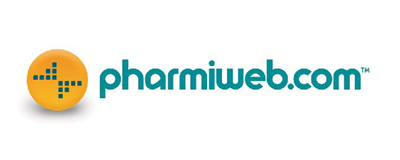Pre-Conference Training
27 September 2021
2.00 pm to 6.00 pm CEST – Online
Remote and Decentralized Trials: a Patient Focused Approach
How to avoid hype and create value for patients and sponsors
Introduction
Remote or decentralized trials are currently a hot topic; among others, driven by the restrictions and concerns of patients and trial sites during the Covid-19 pandemic. Industry is trying to find the right way to design trials with remote and decentralized virtual parts to enhance enrolment and keep retention high.
However….
- How can we make sure that all the good ideas stand firm when those who must live through the clinical trial really make up their mind whether to participate or not?
- Do clinical trial participants really like to have a blood draw at home?
- Do they trust the nurse coming to visit their child without a doctor?
- Do they appreciate the advantages of e-ICF, regardless the disease?
Programme
This course will address methodologies of patient partnering and patient engagement before and during the design of your clinical trial.
The focus will be on remote / decentralized trials. Still, the conclusions will be transferable to most other aspects of patient input into clinical trial design.
The course will navigate you through materials, methodologies, procedures, and tools that can be used in real practice to follow recent FDA guidance for PFDD (patient focused drug development) and recommendations of the EMA.
Topics:
Overview of Patient Involvement at FDA and EMA
– Patient Focused Drug Development Guidance and practice by FDA.
– Recommendation guidance and practice by EMA.
Case Study and Break Out session 1:
– Patient involvement in the design of a decentralized clinical trial (patient relevance impact & opportunities – e.g., diversity, ethical/privacy elements, endpoints etc.).
Proven methodologies and tools for patient involvement I
Case Study and Break Out session 2:
– Patient involvement in the design of a decentralized clinical trial (practical & logistical impact – e.g., patient enrollment & retention, telemedicine etc.)
Proven methodologies and tools for patient involvement II
Break Out session 3:
– Moderated group work on conclusions and results (key take-home learnings & ideas) from the training session.
At the end of the course there will be an opportunity for virtual networking among participants.
Who should attend?
Small Biotech / Start-up Leadership (IND/clinical stage), Clinical Operations, Clinical Development, R&D Strategy, Patient Affairs/Relations, Patient Experts, and those who want to become one, Medical Affairs, R&D Project Management.
Teaching methods
Case studies, procedures, and methodologies tools for use in practice.
Highly interactive moderated exchange of practical experience regarding challenges and solutions.
Break out working sessions, including preparation of presentation of practical learnings and conclusions for full conference audience next day.
Lecturers
Philipp von Gallwitz, Co-Founder admedicum Business for Patients and Patient Activist CDKL5
Roger Legtenberg, Senior Partner admedicum Business for Patients and former CEO of a CRO
At the end of the training, you will be able to…
- Differentiate between hype and actual value of remote/decentralized parts of a clinical trial.
- Identify where and when involvement of patients in your trial design discussion can really be valuable.
- Ask the right questions regarding patient relevance of remote/decentralized clinical trials.
- Define different methodologies for efficient patient involvement in clinical trial design.
- Explain to others why patient engagement in clinical trial design is valuable for your organisation.
Registrati

Versione Stampabile








